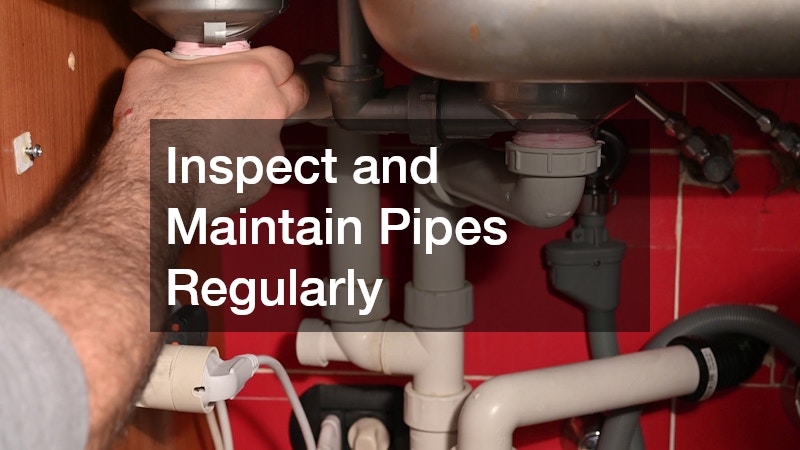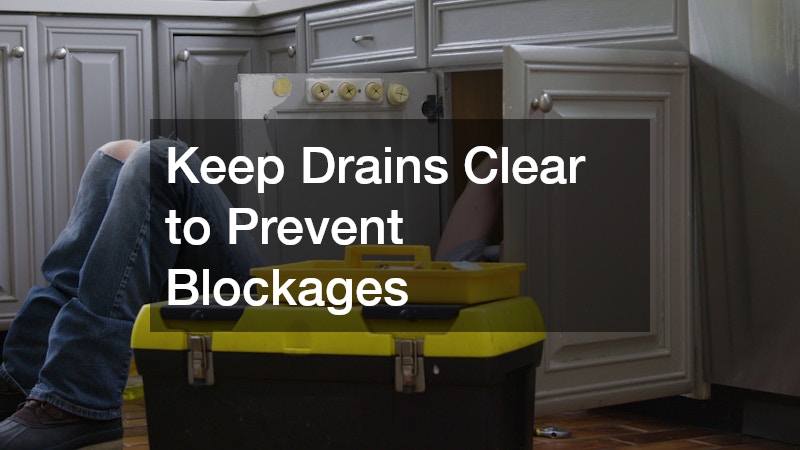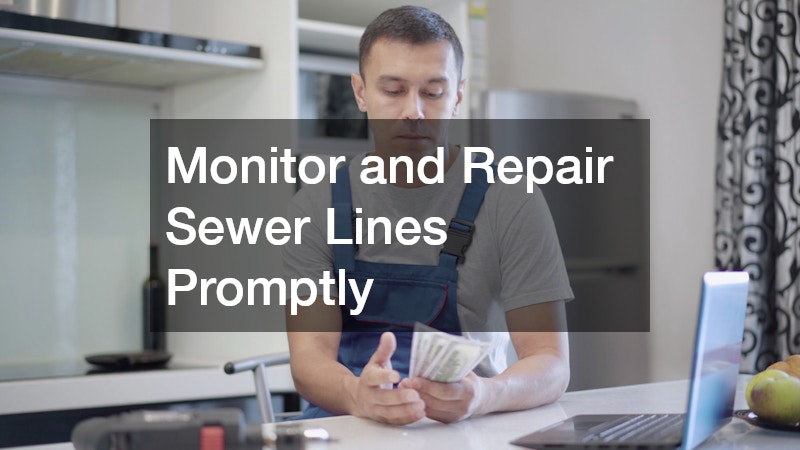Managing household expenses can be challenging, and water bills are often a significant and recurring cost for many homeowners. Reducing water usage not only saves money but also supports sustainable living by conserving a vital resource. Simple adjustments in daily routines, smart maintenance practices, and strategic improvements to home systems can all contribute to lower water consumption. By understanding how water flows through your home, identifying areas of waste, and implementing effective solutions, homeowners can significantly decrease their monthly water bills.
Beyond simply turning off taps or taking shorter showers, homeowners can adopt a proactive approach to managing water use. Regular maintenance, timely repairs, and modern system upgrades help prevent leaks, improve efficiency, and extend the life of plumbing and appliances. In addition, adopting water-conscious habits, such as mindful irrigation or optimized appliance usage, can cumulatively reduce water demand without compromising comfort or convenience.
1. Inspect and Maintain Pipes Regularly

Regular inspection and maintenance of plumbing systems are essential for preventing water loss and ensuring efficient operation. Over time, pipes can develop leaks, corrosion, or blockages that silently waste large amounts of water. Routine inspections help homeowners identify issues before they escalate, reducing the risk of costly repairs and unnecessary water consumption. Paying attention to water pressure, unusual noises, and damp spots around pipes can provide early warning signs that maintenance is required.
Engaging with a professional local plumbing expert can further enhance pipe maintenance. They can assess the condition of your plumbing system, recommend necessary repairs, and provide preventive solutions to maintain efficiency. Small measures, such as replacing worn washers, tightening loose fittings, and clearing minor clogs, can make a significant difference in water usage. Additionally, inspecting outdoor irrigation and drainage systems ensures that water is not lost to leaks or inefficient distribution, ultimately lowering your overall water bill.
Homeowners can also incorporate simple, consistent checks into their routines. Monitoring under-sink areas, checking garden hoses, and observing visible pipes for moisture can prevent small leaks from becoming costly problems. These small actions, when combined with professional services, help maintain a robust plumbing system that reduces water waste.
2. Upgrade to an Efficient Water Heating System
Modern water heating systems are more energy- and water-efficient than older models, and upgrading can result in notable savings. Traditional water heaters often maintain a large tank of hot water, which requires constant heating and can lead to standby losses. Switching to more efficient systems, such as tankless water heaters, allows water to be heated on demand, reducing unnecessary energy and water waste. These upgrades also provide a consistent hot water supply while lowering operational costs.
Tankless water heaters, in particular, heat water only when needed, eliminating the energy loss associated with storing hot water in a tank. This system not only reduces energy consumption but also prevents water waste from running taps while waiting for hot water. Installation requires consideration of household water demand and professional guidance to ensure the system is appropriately sized. Over time, the increased efficiency and reduced wastage associated with tankless water heaters can make a substantial impact on both water bills and environmental footprint.
In addition to replacing the system, homeowners can optimize usage habits. Installing low-flow showerheads, insulating hot water lines, and scheduling laundry and dishwashing when needed helps maximize the efficiency of an upgraded water heater. These complementary measures enhance savings while ensuring reliable access to hot water.
3. Schedule Routine Checkups with Professionals

Regular professional inspections can prevent minor issues from turning into costly, water-wasting problems. Experienced plumbers can identify leaks, outdated fixtures, and inefficiencies that are easy to overlook during routine home checks. By scheduling routine checkups, homeowners can maintain a system that functions optimally and conserves water effectively. Preventive maintenance also helps extend the lifespan of pipes, appliances, and other plumbing components, reducing long-term expenses.
Plumbers can provide in-depth diagnostics that detect hidden leaks behind walls or under flooring, where water loss may not be immediately noticeable. They can also advise on retrofitting faucets and fixtures with water-saving technology, correcting pressure imbalances, and updating old piping. These targeted interventions, guided by a licensed professional, ensure that water is used efficiently throughout the home. Engaging in regular checkups is a proactive approach that minimizes water waste and prevents sudden, unexpected spikes in utility bills.
Homeowners benefit further by keeping records of past inspections and maintenance. Tracking service dates and noted repairs can help schedule timely follow-ups and prevent recurring problems, providing a more systematic approach to water conservation over the long term.
4. Optimize Your Water Heater Performance
Properly maintaining your water heater ensures it operates efficiently and consumes minimal water and energy. Sediment buildup, incorrect temperature settings, and aging components can reduce a water heater’s efficiency, causing excessive water use and higher bills. Regular flushing, temperature adjustments, and timely repairs help maintain peak performance and reduce unnecessary consumption. Consistent maintenance also prolongs the appliance’s lifespan, lowering the need for replacement.
Water heater services can involve professional inspection, cleaning, and component replacement. A technician can evaluate the tank, thermostat, and pressure relief valves to ensure the system functions correctly. Adjusting the temperature to a moderate setting prevents excessive water heating, which conserves energy and reduces hot water wastage. Regularly checking for leaks around the unit and ensuring proper insulation also enhances efficiency. By taking these steps, homeowners can lower their water bills while enjoying consistent, reliable hot water.
Simple lifestyle adjustments also enhance heater performance. Limiting hot water use during peak hours, using cold water for laundry when appropriate, and encouraging shorter showers can complement mechanical efficiency, resulting in noticeable savings over time.
5. Keep Drains Clear to Prevent Blockages

Clogged drains can cause water to back up, creating potential overflows and water waste. Regular drain maintenance ensures that wastewater flows smoothly, preventing leaks and the need for excessive flushing. This includes routine cleaning, avoiding pouring grease or debris down drains, and monitoring slow drainage as an early warning sign. Maintaining clear drains promotes efficient water use and reduces the likelihood of costly plumbing emergencies.
A professional drain cleaning company can provide thorough cleaning using specialized tools that remove buildup from pipes. They can also offer preventive strategies, such as installing strainers or scheduling regular maintenance, to minimize the risk of future clogs. Professional service ensures that pipes remain free-flowing, which directly impacts water efficiency by preventing accidental overuse. By addressing drainage issues proactively, homeowners can avoid wasted water and maintain a smoother, more efficient plumbing system.
In addition, homeowners can adopt daily habits to protect drains. Using mesh strainers in sinks, limiting food scraps in garbage disposals, and periodically flushing drains with hot water helps maintain flow between professional cleanings. These small steps contribute to long-term efficiency.
6. Utilize Reliable Local Experts for Plumbing Needs
Relying on local experts ensures that plumbing systems are maintained with knowledge of regional conditions, water quality, and common household issues. Local plumbing service providers are familiar with area-specific concerns, such as water hardness, seasonal temperature fluctuations, and soil types that can affect pipes. By leveraging their expertise, homeowners can implement practical solutions that conserve water and prevent problems before they escalate.
A local plumbing service can perform comprehensive assessments, suggest upgrades, and provide personalized recommendations tailored to the home. They may identify areas where leaks are likely or recommend fixture replacements that improve efficiency. Collaborating with experts familiar with the community allows for a more informed approach to water conservation and ensures that systems are optimized for the local environment. This guidance can significantly lower water bills while maintaining the integrity and longevity of plumbing infrastructure.
Working with local experts also improves response times when issues arise. Quick, informed service reduces the duration of leaks or inefficiencies, preventing prolonged water loss and minimizing disruption to household routines.
7. Monitor and Repair Sewer Lines Promptly

Sewer line issues can result in significant water waste and structural damage if left unaddressed. Cracks, blockages, or tree root intrusions can compromise flow and lead to leaks or backups. Timely identification and repair of sewer problems are crucial to preventing water loss and avoiding expensive remediation. Regular inspection and monitoring are key components of a proactive water management plan.
Engaging in local sewer repair services ensures that problems are addressed efficiently and effectively. Professionals can use advanced diagnostic tools, such as video camera inspections, to pinpoint issues and recommend targeted solutions. Promptly repairing or replacing damaged sections prevents water from escaping the system and reduces the likelihood of contamination. Maintaining sewer lines in optimal condition preserves both water and home integrity, contributing to lower overall water expenses and a healthier household environment.
Routine maintenance and vegetation management near sewer lines can also prevent recurring damage. Avoiding planting trees too close to pipes and inspecting connections periodically reduces the risk of future leaks, ensuring long-term efficiency.
8. Implement Preventive Measures to Avoid Leaks
Preventing leaks before they occur is one of the most effective ways to reduce water waste. Small leaks can gradually increase monthly water consumption, often unnoticed until bills rise significantly. Routine inspections, vigilant observation, and timely maintenance are essential for spotting potential vulnerabilities in faucets, toilets, and pipelines. Addressing these risks early minimizes water loss and reduces repair costs.
Plumbing services can help homeowners identify areas prone to leaks, recommend upgrades, and implement preventive solutions. This may include replacing aging fixtures, sealing joints, or installing water-efficient valves. Proactive leak prevention ensures consistent water use while avoiding the hidden costs of undetected drips or hidden pipe failures. These preventive strategies can significantly reduce water bills over time by eliminating waste at the source and maintaining a reliable, efficient home plumbing system.
Homeowners can further encourage leak prevention by monitoring water meters regularly. Sudden changes in readings can indicate hidden leaks, allowing for immediate action before significant water loss occurs.
9. Protect Your Home Against Water Damage
Water damage can increase utility bills indirectly by requiring excessive water to clean or repair affected areas and can lead to higher maintenance costs. Waterproofing and protective measures prevent leaks from appliances, roofs, or foundation cracks, limiting unnecessary water use and damage. A well-protected home maintains better water efficiency and reduces the financial burden of water-related repairs.
A waterproofing company can assess vulnerabilities, recommend solutions, and install protective systems to keep water out of sensitive areas. This may include basement sealants, foundation coatings, or moisture barriers that prevent leaks from spreading. By proactively preventing water intrusion, homeowners safeguard their property and maintain efficient water usage throughout the household. Protecting the home from water damage ensures that water is used only for intended purposes, which supports lower water bills and overall home resilience.
Regularly inspecting gutters, downspouts, and roof flashing further prevents water intrusion. Keeping these systems clear ensures proper drainage, avoiding pooling water that can damage foundations or increase indoor water usage.
10. Adjust Irrigation for Efficient Water Use
Outdoor water use, particularly irrigation systems, can contribute significantly to monthly water bills if not managed efficiently. Adjusting sprinkler schedules, monitoring rainfall, and using efficient watering techniques ensure that plants receive adequate hydration without excess waste. Smart irrigation practices conserve water and reduce unnecessary runoff, benefiting both the environment and household expenses.
A properly designed sprinkler system can minimize water loss by delivering water directly to plant roots and avoiding overspray onto sidewalks or driveways. Regular maintenance, including checking for leaks, broken heads, or misaligned nozzles, improves system performance. By adjusting watering times to early morning or late evening and incorporating moisture sensors, homeowners can maximize irrigation efficiency. This targeted approach reduces water use while maintaining a healthy landscape, translating into lower overall water consumption and utility costs.
Homeowners can also adopt landscaping strategies that complement irrigation efficiency. Planting drought-resistant species, using mulch to retain soil moisture, and grouping plants with similar water needs reduces the overall irrigation requirement and helps maintain a sustainable, low-cost outdoor water system.
Lowering a water bill requires a combination of practical habits, regular maintenance, and informed improvements. By examining how water moves through a home, addressing inefficiencies, and proactively preventing leaks, homeowners can significantly reduce unnecessary usage. Every small adjustment—from efficient irrigation to maintaining appliances and pipes—adds up, creating measurable savings over time. Beyond financial benefits, conserving water promotes sustainable living and reduces the environmental impact of household consumption.



